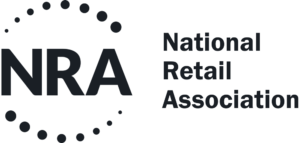Identifying the applicable industrial instrument
Under the National industrial relations system, many terms and conditions of employment are set by an industrial instrument.
The two most common types of industrial instruments are “modern awards” and “enterprise agreements”. Where no industrial instrument applies to an employee, they are referred to as “award/agreement free” employees.
It is important to know which industrial instrument applies to your business and each of your employees, as this directly affects what your employees have to be paid.
You should also remember that an industrial instrument applies in addition to the Fair Work Act 2009 (Cth) (FW Act).
Modern awards
A modern award is the safety net that applies to employers in certain industries, and to employees in certain occupations, who are not covered by an enterprise agreement.
Enterprise agreement
An enterprise agreement applies to specific employers and their employees who are described within the agreement.
Award / Agreement Free
If neither a modern award or an enterprise agreement applies to the employer or the employee, the employee is likely award/agreement free.
An overview of
What is a modern award?
Modern awards set out the minimum standards of employment for particular industries and certain occupations.
Modern awards are documents created by the FWC, usually in consultation with unions, employer groups and governments.
There are over 100 different modern awards in Australia which may apply to a business.
To whom do awards apply?
Awards generally apply to:
- all employees in a particular occupation (an occupational award); or
- all employees in particular occupations employed by employers specified in the award (an industry award).
Even though this can be confusing, it is important to understand the differences between the two types of modern awards.
Occupational awards vs Industry awards
Occupational awards apply to all employees in a particular occupation, regardless of the nature of the business that employs them. In order for an occupational award to apply, it is enough that the employee’s role is described in the award.
Examples of “occupational awards” include:
- Graphic Arts, Printing and Publishing Award 2020;
- Professional Employees Award 2020; and
- Surveying Award 2020.
Which modern award applies to my business?
The Fair Work Commission (FWC) maintains a list of all modern awards, and the Fair Work Ombudsman (FWO) also has a tool to help identify which modern award may apply based on an employee’s job title. However, you should always seek independent legal advice if you are unsure.
To work out if a modern award applies to your business, you will need to look at the actual terms of the modern award itself.
There are two key clauses that you will need to examine to determine if a modern award applies:
- the scope or coverage clause; and
- the classification definitions.
Sometimes, you will need to check a third clause, the definitions clause, for the meaning of key words and phrases that are used in the modern award.
Scope/Coverage
Each modern award has a clause titled “Scope”, or sometimes “Area and Scope”, or “Coverage” (usually towards the front of the modern award) which describes who or what it covers.
Classification definitions
Each modern award has a Schedule titled “Classifications” or “Classification definitions”. These schedules describe the roles that may be covered by the modern award.
If your business and/or any of your employees are covered by a modern award, follow the link below to find out how to identify what classification they fall under.
Next Module:
An overview of agreements
What is an enterprise agreement?
Enterprise agreements are documents negotiated between an individual employer and their employees using a process known as “enterprise bargaining”, which are then approved by the Fair Work Commission. These agreements usually have additional terms to ensure that they reflect a business’s individual requirements.
There are thousands of enterprise agreements across Australia.
How can I find out if an enterprise agreement applies to my business?
You will generally be aware if an enterprise agreement applies to your business, as you would have negotiated its terms with your employees and lodged the agreement with the Fair Work Commission for approval.
However, where you have purchased an existing business that already has an enterprise agreement, there are circumstances where the enterprise agreement will continue to apply to some or all of your employees. It is highly recommended that you obtain legal advice in such a circumstance.
An enterprise agreement will generally include the name of the business in the title.
Can an enterprise agreement and a modern award apply to the same business?
Like modern awards, enterprise agreements will specify the roles or occupations to which they apply.
If a particular role is not described in the enterprise agreement, the agreement will not apply to that role.
For this reason, it is possible for both a modern award (or several modern awards) and an enterprise agreement to apply to the same business.
How do I identify what classification applies to each of my employees?
If your business and any of your employees are covered by an enterprise agreement, follow the link below to find out how to identify what classification they fall under.
Next Module:
An overview of award / agreement employment
What if an industrial instrument doesn’t apply to an employee?
Where neither a modern award or enterprise agreement applies to an employee, it is likely that they will be “award/agreement-free”.
It is very common to have some employees who might be covered by a modern award or enterprise agreement, and some who will be award/agreement-free.
Before deeming an employee to be award/agreement-free, employers should first consider whether the Miscellaneous Award 2020 may apply to the employee instead.
Who is typically award/agreement-free?
Generally (but not always), only some roles within a business will be award/agreement-free. The roles which are typically award/agreement-free include:
- senior managers (such as executives);
- lawyers;
- accountants; and
- public relations professionals.
If your business is covered by a modern award or enterprise agreement but an employee does not fit any of the classifications in the applicable award or agreement, you should consider if that employee is in fact award/agreement-free. If you are unsure you should contact the Fair Work Ombudsman or obtain legal advice.
Are there still minimum standards of employment?
The minimum standards of employment for award/agreement-free employees are regulated by:
- The Fair Work Act 2009 (Cth) (FW Act); and
- the National Minimum Wage Order issued by the Fair Work Commission (FWC) each year.
Further information concerning these minimum standards of employment can be found by visiting the next Module.


